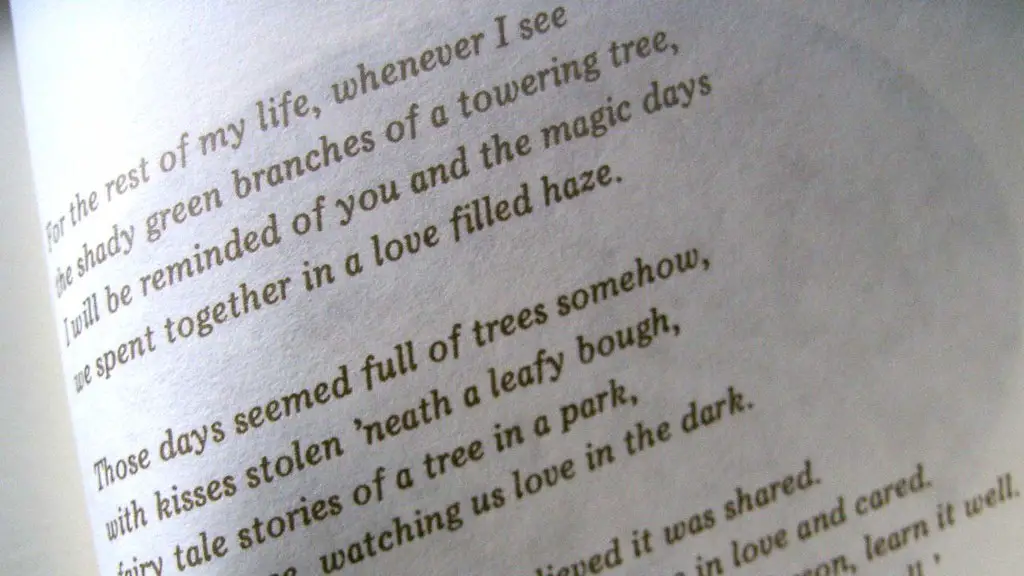Mark Twain is best known for the beloved classics The Adventures of Huckleberry Finn and The Adventures of Tom Sawyer , but there is much debate and controversy surrounding the author’s views on race. There are those who claim that Twain’s work is rife with racism and bigotry, while others insist that he was a progressive thinker and forward-thinker. To understand the full scope of Twain’s views on race, it is essential to look at his life, writings, and opinions.
Although some of Twain’s writings contain elements of racism, Twain himself was a product of his time and had a complicated relationship with race. Twain was born in 1835 in Missouri, a state in the United States where slavery was legal. Growing up, Twain witnessed the horrors of slavery, and the casual racism of everyday life. In his essay A Similar Experience Twain recounts the horrors of his childhood. The overwhelming racism of the society that he himself lived in, would have certainly had an effect on his own views on race.
Twain himself, was also at times, unwilling or perhaps unable, to take a hard stance on racism. His attitudes on slavery were nuanced and complicated. In his letters he expresses feelings of “degradation” when a black man was elected as a member of congress, yet in the same letters he expresses admiration for the bravery of a black itinerant preacher. Some readers have suggested that Twain’s reactions reflect the confusion and struggles surrounding his time period—when society was trying to come to grips with racism that had been institutionalized for centuries.
Twain’s Adventures of Huckleberry Finn has been singled out as particularly rascist. However, many Twain scholars are quick to point out that Twain was actually trying to challenge the racist ideas of his time. Studying the book considerately has been known to reveal Twain’s use of irony and satire to expose some of the injustices of racism. In the novel, the lead character Huck Finn learns many of his most valuable lessons from his close friend and companion, the runaway slave Jim. Yet despite the numerous lessons Huck learns from Jim, the novel still contains several instances of racism.
Today, scholars and critics are still discussing Twain and his views on race. While some claim that Twain’s works undeniably contain several instances of racism, others argue that he is not a racist. Examining Twain’s life and writings can give us insight into his complicated relationship with race, and maybe provide us with different ways of thinking about race today.
Twain’s Perspective on Slavery
Twain’s attitude to slavery was also complex and nuanced. He often spoke out against slavery, as evidenced in “Pudd’nhead Wilson,” in which he denounces the institution as morally wrong; yet, Twain also recognized that many slave-owners were sincerely attached to their slaves and could not have reasonably been expected to be the first to renounce the system: “We may go further and say that a Southern master, who was kind to his slaves, tender and gentle with them in all things, … [they] thickly clustered … around him, loving him as if he were their own father.”
Twain’s criticism of slavery was not as condemnatory as that of some of his fellows, such as William Lloyd Garrison, whose paper, the Liberator, advocated immediate emancipation. Twain was still capable of showing compassion and understanding for why slaveholders kept slaves even though it was a horrible immoral practice. His views on slavery can be read as a cry to make those in power redefine the institution with a kinder perspective, a call to make enslavement as humane as it can be.
Twain’s Writing and Racism
Twain’s writing, however, betrays his more ambivalent attitudes towards racism. As a Southerner who had grown up surrounded by racially entrenched attitudes, Twain often portrayed all characters impartially, regardless whether they were black or white. For instance, in the novel Tom Sawyer, Jim, the runaway slave, is portrayed as a capable and intelligent character who, although subject to the whims of his white masters, eventually manages to acquire his freedom.
Yet, Twain is not without fault. Many of his writings reflect the prevailing views on racial superiority of his time and place, including his notorious description of the freedmen after the Civil War as “laziness and vice … unchecked and unconfined,” and his frequent criticism of “the African race” as a whole. These particular passages can be interpreted as reflecting Twain’s own views, or they can simply be seen as reflecting the views and attitudes that were pervasive in the South at that time.
Twain’s Later Life and Attitudes
After the Civil War, Twain and his wife moved to the North and Twain became increasingly outspoken in his criticism of racism, though at times he was accused of merely posturing. Twain’s attitudes towards race became even more complicated, as he found himself of multiple identities and conflicting opinions. In a speech in Hartford, Connecticut, he declared: “we are all parties of one and the same color—a color that is only discolored by prejudice.”
Twain ultimately wrote two significant works on race: “The Tragedy of Pudd’nhead Wilson” and “Adventures of Huckleberry Finn.” In these two works, Twain is to some extent expressing his own views on the subject, though not always in the most forthright manner. Twain’s use of dialect and his critique of racism and the institution of slavery reflect his complex views on race, which saw him wavering between criticism and empathy – criticism of the Confederate cause and of the unjust institution of slavery, and empathy with the plight of African Americans.
Twain’s Perspective on Jim Crow Era
As racial tensions increased and the Jim Crow era began, Twain grew increasingly opposed to racism and bigoty. He spoke out against the atrocities of lynching and the harsh treatment of African Americans. He was also one of the early critics of the National Association for the Advancement of Colored People (NAACP), which he perceived as too radical for its time. Twain called the NAACP “unthinkable” and declared that it was no part of a civilized society’s duty to antagonize and afflict the already plundered race “just to satisfy its vengeful appetite.”
Yet, Twain didn’t completely abandon criticism either, even if his attitude was more tempered. He criticized black opportunities when observing the work of the NAACP, critiquing the idea that African Americans should be given preferential treatment over white Americans. Twain had grown weary of the escalating race relations and of the persistence of racism, concerned that it would never be addressed. As he wrote in “What is Man?”, he was unsure whether humanity would pass through the stormy period that racism had brought about or persist in current wickedness.
Twain’s Legacy and Controversy
Today, Twain’s legacy as it relates to racism and bigotry is still fiercely debated. It’s true that Twain was a product of his time, and his views on race reflect this fact. As someone who grew up in pre-Civil War America, Twain’s views on race were complicated and multi-faceted. He was a critic of the racial injustice of his time, but he was not necessarily a proponent of full racial equality. His works—from “The Adventures of Huckleberry Finn” to “Pudd’nhead Wilson”—show his ambivalence to race relations and the racism endemic in every level of Southern society. His writings also show his openness to change and progress, yet his views on race can be conflicting and confusing. Twain’s legacy as it relates to race is complex and multi-layered.
Influence on Later Writers and Scholars
Despite his sometimes complicated views on race, Twain has had a lasting influence on later generations of writers and scholars. His works, such as “The Adventures of Huckleberry Finn” and “Pudd’nhead Wilson,” have been used to challenge and re-examine many long-held beliefs and assumptions about race. Writers such as Toni Morrison and Alice Walker have used Twain’s writing as a model for their own works and have written about the influence that Twain has had on their own writing and thinking. Scholars too have examined and studied Twain’s works and perspectives, attempting to gain a better understanding of his views on race.
Mark Twain is one of America’s most beloved and enduring authors, and there is no doubt that he has had a profound impact on literature. His works and writings have helped shape the way our society and culture think about race and racism. Though Twain was a product of his time, his works still have the power to help us better understand the complexities of race relations.




